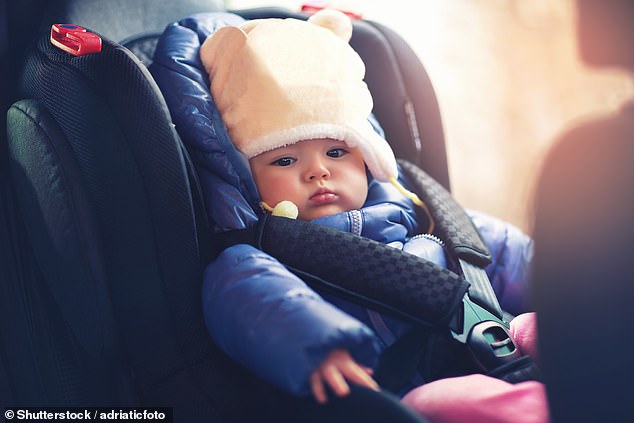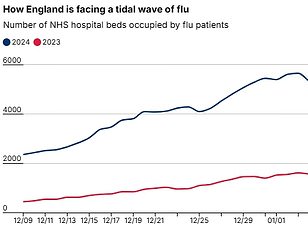Warning to parents over common travel mistake they make in cold weather that could cost a child's life
Parents have been warned to avoid an innocent but potentially deadly mistake they could make as they try to keep their child warm this winter.
With cold weather battering the UK it may seem obvious to wrap a child in as much warm clothing as possible.
But experts say one time this must be avoided is when strapping a young child or baby into a car seat.
While puffy clothing like big coats, snowsuits, and hoodies may be cosy, they could pose a hazard should you need to brake in an emergency.
Graham Conway, managing director at Select Car Leasing, told The Huffington Post bulky clothing can make the straps seem tighter than they actually are.
He explained how if a driver needed to slam the brakes, or the vehicle was hit ,this could lead to a child coming loose from the seat, with potentially devastating consequences.
To avoid this, Mr Conway advised parents to dress their child in thinner layers like a long sleeved top and fitted jumper.
He added that blankets can be used but added these must be put over the straps once they are sufficiently tightened to avoid the same issues with bulky clothes.

While puffy clothing like big coats, snowsuits, and hoodies may be cosy and comfortable they could pose a hazard to a child wearing them in a car seat. Stock image
A report from the road safety Brake found that 23 children under the age of 15 died while travelling in a car in 2023, with a further 486 seriously injured.
Mr Conway also advised parents of young children to avoid giving them thick or heavy hats to wear during car trips.
He warned such headwear can move during travel to cover a baby or young child's face.
Not only could this distress them, it could seriously restrict their breathing if the drooping hat ends up covering the child's mouth and nose.
The warning comes as the UK experienced the coldest night of the winter season so far.
Some parts of the country are predicted to hit as low as -20C tonight (-4F) with frost, snow and ice soon to blanket the nation.
While many parents know of the need to get a properly fitted car seat for their child, there are some little-known tips on how to safely use them.
One is that babies aged under one should only be in a car seat for a maximum of two hours at a time.

The warning comes as the UK experienced the coldest night of the winter season so far.. Pictured: Members of Mountain Rescue team in Derbyshire help a motorist amidst white-out conditions on Snake Pass on Thursday

OXFORDSHIRE: A hard frost covered the countryside on Thursday after a bitterly cold night in Dunsden
This is due to research suggesting young babies could be at risk of serious breathing difficulties if they sleep in a seated position for too long.
Very young children lack muscles in the neck that enables them to keep their head up, increasing the risk of suffocation.
Parents are advised to take frequent breaks and preferably have an adult in the back with a baby during a car ride.
If a sleeping baby changes position and slumps forward in the seat parents and carers should stop driving and reposition the child so they sit upright before continuing the journey.
Another clothing related issue is ensuring that a baby placed in a car seat is not too warm as this can increase the risk of potentially dangerous overheating.
Charity The Lullaby Trust warns that when babies are too hot they are at increased risk of sudden infant death syndrome (SIDS) which kills about 200 babies a year in Britain.
SIDS is thought to occur when a baby struggles with environmental stresses, such as heat, and is unable to regulate their heart rate, breathing and temperature to compensate which can lead to them not getting enough oxygen.
As such parents are advised to remove most outdoor clothing before placing a baby in a car.
To check a baby isn't too hot, touch their stomach or the back of their neck.
If this skin feels clammy or sweaty they are too hot, and a layer of clothing should be removed.
Parents are also advised to always place a baby or child car seat in the back of the car and not the passenger seat.
This is to avoid risks posed by the passenger side airbag, which if activated in an accident, could launch with enough force to hit the seat potentially causing injury or death.

















































































































































































































































































































































































